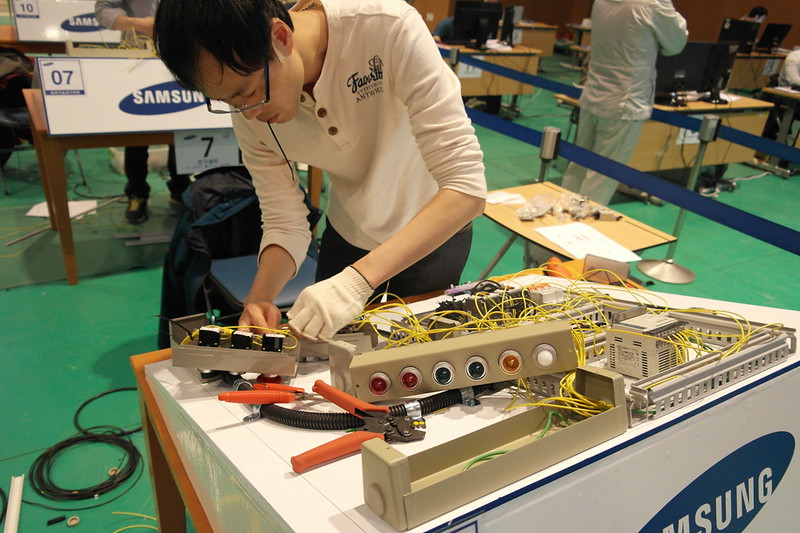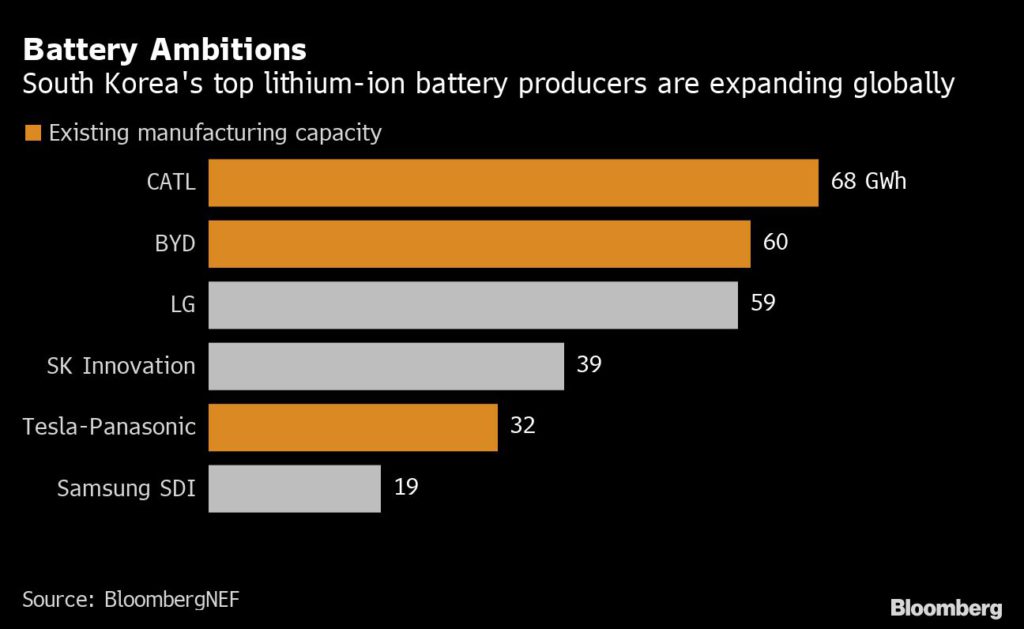
South Korea plans to invest 40.6 trillion won ($35 billion) in its electric-vehicle battery industry by the end of the decade to secure its spot as a major global force in the sector and compete with a dominant China and Japan.
LG Energy Solution Co., SK Innovation Co. and Samsung SDI Co. will be key players, driving investment in research and development and battery production, the government said in a statement Thursday.
“The plan is to ensure that incentives are provided to companies for their investments and R&D to help them become global leaders in the battery market,” it said. “The government will make all efforts to support and grow this industry, which will be a vital part of the country’s future economy.”
South Korea has some of the world’s biggest makers of batteries for electric cars, accounting for a third of the global market in the first five months of this year, and companies are expanding and adding facilities overseas to meet growing demand for EVs. Their production capacity almost quadrupled to 217 gigawatt-hours in 2020 from 59 GWh in 2016, according to the government.

China’s Contemporary Amperex Technology Co. Ltd. alone accounted for 31% of battery sales this year through May, according to SNE Research, which expects the global battery market to surge to about $352 billion in 2030 from $46 billion last year.
“Additional investment and support is absolutely critical at this point as we’re expecting long-term growth from the market,” said Yoon Joon-won, a fund manager at DS Asset Management Co.
LG Energy said in a statement it plans to invest 15.1 trillion won by 2030, including 9.7 trillion won in R&D. It will build an institute in South Korea for training in battery technology, expected for completion in January 2023. The company said it has a backlog of EV battery orders worth over 180 trillion won.
SK Innovation and Samsung SDI didn’t provide details on investment plans.
President Moon Jae-in’s administration said it will support companies developing next generation products, including solid-state batteries. An 80 billion won fund will help small- and medium-sized firms strengthen their ability to provide battery-making materials and components. The government, financial institutions and the three battery makers will contribute to the fund. South Korea also plans to develop its used-battery industry.
“The Korean government will need to accelerate power sector decarbonization as well as EV adoption at home if it wants the country to remain at the center of battery manufacturing in the future,” said Ali Izadi-Najafabadi, head of Asia Pacific research at BloombergNEF.
South Korea joined China and Japan last year in setting a deadline to become carbon neutral by 2050. It has a 42.7 trillion won plan known as the Green New Deal that aims to boost low-carbon power sources and foster green industries amid an effort to triple renewable energy output by 2025.
(By Kyunghee Park and Heesu Lee)
Comments